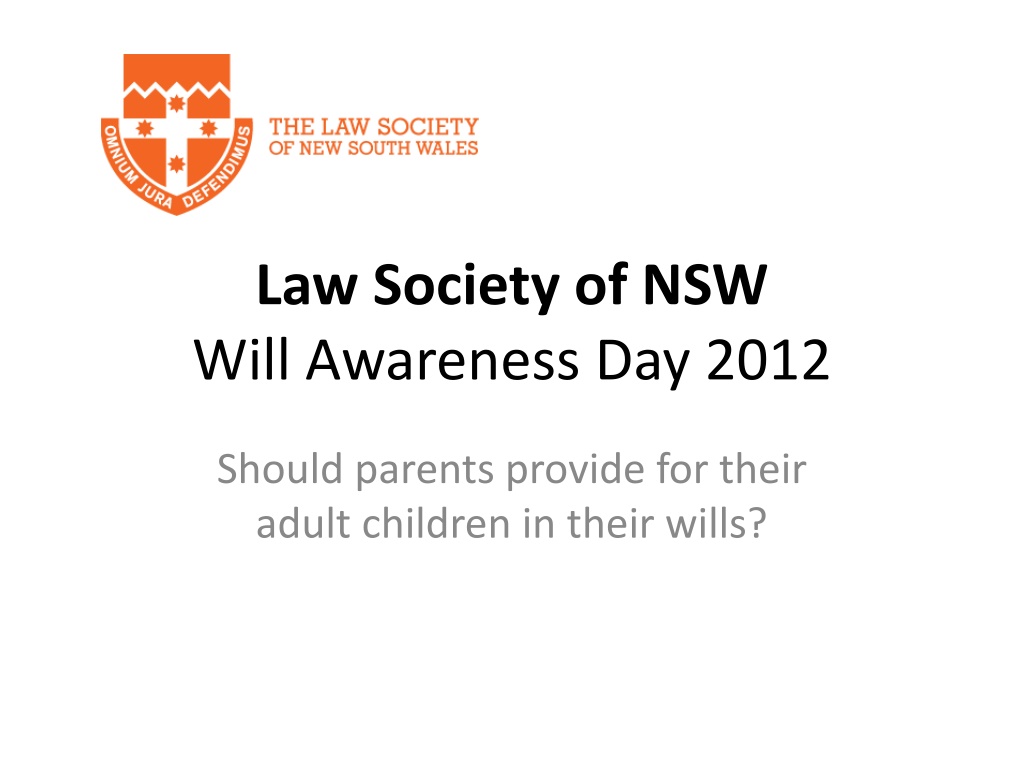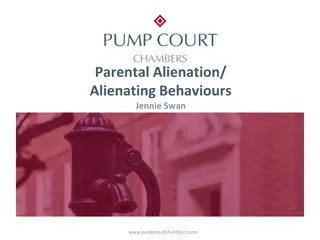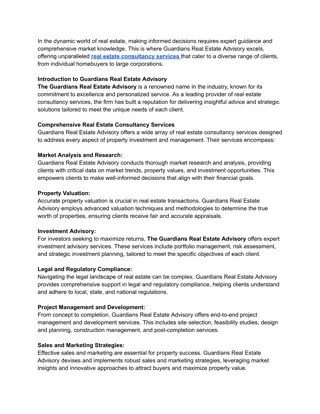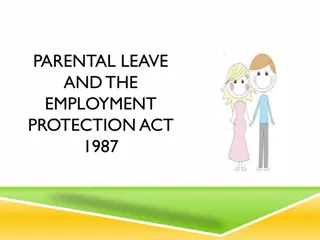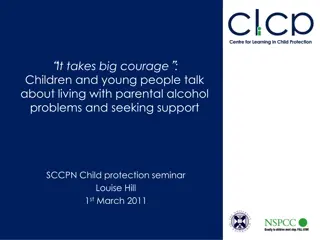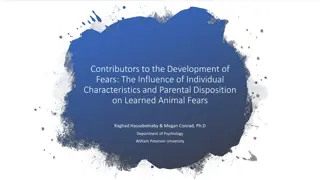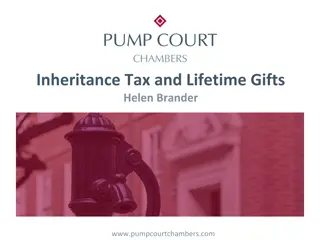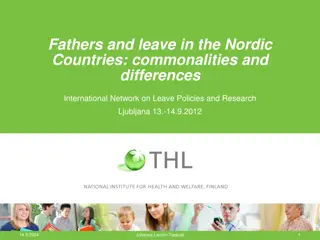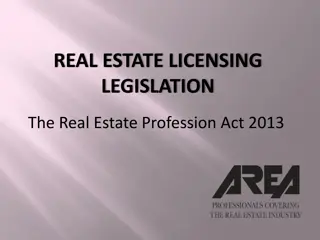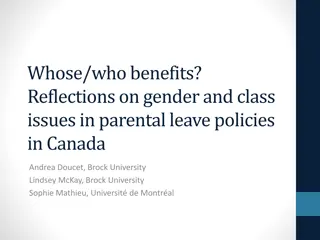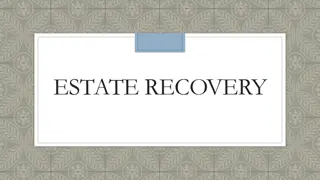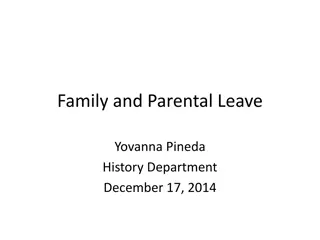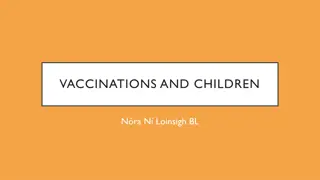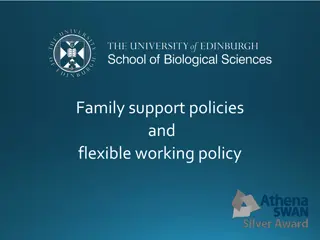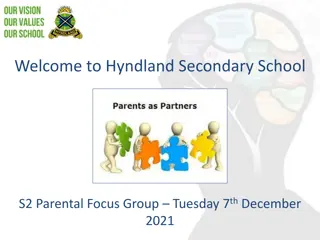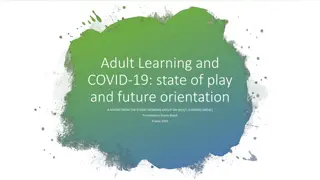Understanding Parental Responsibility in Estate Planning: To Provide or Not to Provide for Adult Children?
Exploring the ethical and legal considerations of whether parents should include their adult children in their wills. The article discusses the implications of providing for adult children, the legal framework surrounding testamentary freedom, challenges to wills, and the historical evolution of legislation addressing family provision in estate distribution.
Download Presentation

Please find below an Image/Link to download the presentation.
The content on the website is provided AS IS for your information and personal use only. It may not be sold, licensed, or shared on other websites without obtaining consent from the author. Download presentation by click this link. If you encounter any issues during the download, it is possible that the publisher has removed the file from their server.
E N D
Presentation Transcript
Law Society of NSW Will Awareness Day 2012 Should parents provide for their adult children in their wills?
Should parents provide for their adult children in their wills? What do you think? YES? Your children are always your children. NO? Your children should make their own way in the world and you should be able to exclude them if you want to. IT DEPENDS? What if the parent has remarried? What if the parent and child are estranged?
Should parents provide for their adult children in their wills? What is the law? Children of any age can apply to the Court for provision to be made for them from a parent s estate. Whether the Court will order provision for a child depends on a number of factors, including the child s needs, the needs of other family members, and the relationship between the parent and child.
Why bother making a will if it can be challenged? This question is often asked of solicitors when they are advising a client who wants to exclude someone. It is important to understand that: without a will you lose any say in how your assets are distributed, and even if a challenge is successful the court does not disturb a will more than it needs to to make provision.
Testamentary Freedom reality or myth? Testamentary freedom is the idea that a person is free to set out, in a will, their intentions for the distribution of their assets after death. In Australia if certain people are not adequately provided for they can make a claim. NZ, Canada, UK are similar to Australia. In many other countries (eg. in Europe and Asia) there is no absolute testamentary freedom and forced heirship applies to decide how a person s assets are shared between spouses and children, often defined by legislation, or by custom.
Contest between testamentary freedom and testamentary duty The concept of testamentary freedom was a feature of the 19thcentury British empire. In Australia, NZ and Canada, in the late 19thcentury, there were cases where very wealthy men, left their widows and children unprovided for in their estates. These cases generated public outrage and agitation for legislative interference with testamentary freedom. NZ introduced the Testator Family Maintenance Act in 1900. The idea of legislation to ensure proper provision for family members subsequently spread throughout Australia and eventually to Canada and the UK.
NSW Family Provision 1916 - Testator s Maintenance and Guardianship of Infants Act 1982 - Family Provision Act 2009 - Succession Act Over the years the class of persons entitled to make a claim has broadened, eg to include ex nuptial children and defacto partners. All Australian states and territories have family provision legislation. Some states refer, in the legislation, to proper maintenance and support . NSW uses the term proper maintenance, education and advancement in life .
Who is eligible to make a claim? a spouse a defacto partner a child of any age a former spouse a grandchild who has been dependent on the deceased a person who was a member of the same household with and dependent on the deceased a person who was living in a close personal relationship with the deceased at the time of death.
Eligible is not the same as entitled Just because an adult child is an eligible applicant does not mean that he or she will be entitled to share in the estate. The Court may decide to make provision for an adult child, but it may also decide not to disturb the deceased s will.
Relevant factors include the child s relationship with the deceased parent the deceased s obligations or responsibilities to the child size of the estate financial resources and needs of the child financial circumstances of child s spouse any physical, intellectual or mental disability the child may have the child s age any contribution by the child to the parent s assets any provision made for the child by the parent any evidence of the testamentary intentions of the parent, including evidence of statements made by the parent whether the child was dependant on the parent before the parent s death, whether any other person is liable to support the child, the child s character and conduct
The Courts role It is not the Court s role to: completely rewrite the will to make it fair ensure equality between siblings correct hurt feelings or sense of wrong It is the Court s role to: ensure that adequate provision is made for proper maintenance and support
So how much is adequate provision for an adult child? No simple answer it comes down to what the Court thinks the community would expect. If the child is financially secure and the estate is small the answer might be zero. If the child is in financial need and the estate is large the answer might be a great deal.
Summary You can make a will dividing your estate according to your wishes. If you do not make provision for an adult child, that child will be eligible to make a claim. If the Court decides that provision should be made for that adult child it will vary the terms of the will only to the extent necessary to make that provision.
